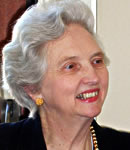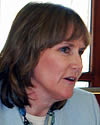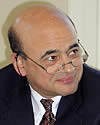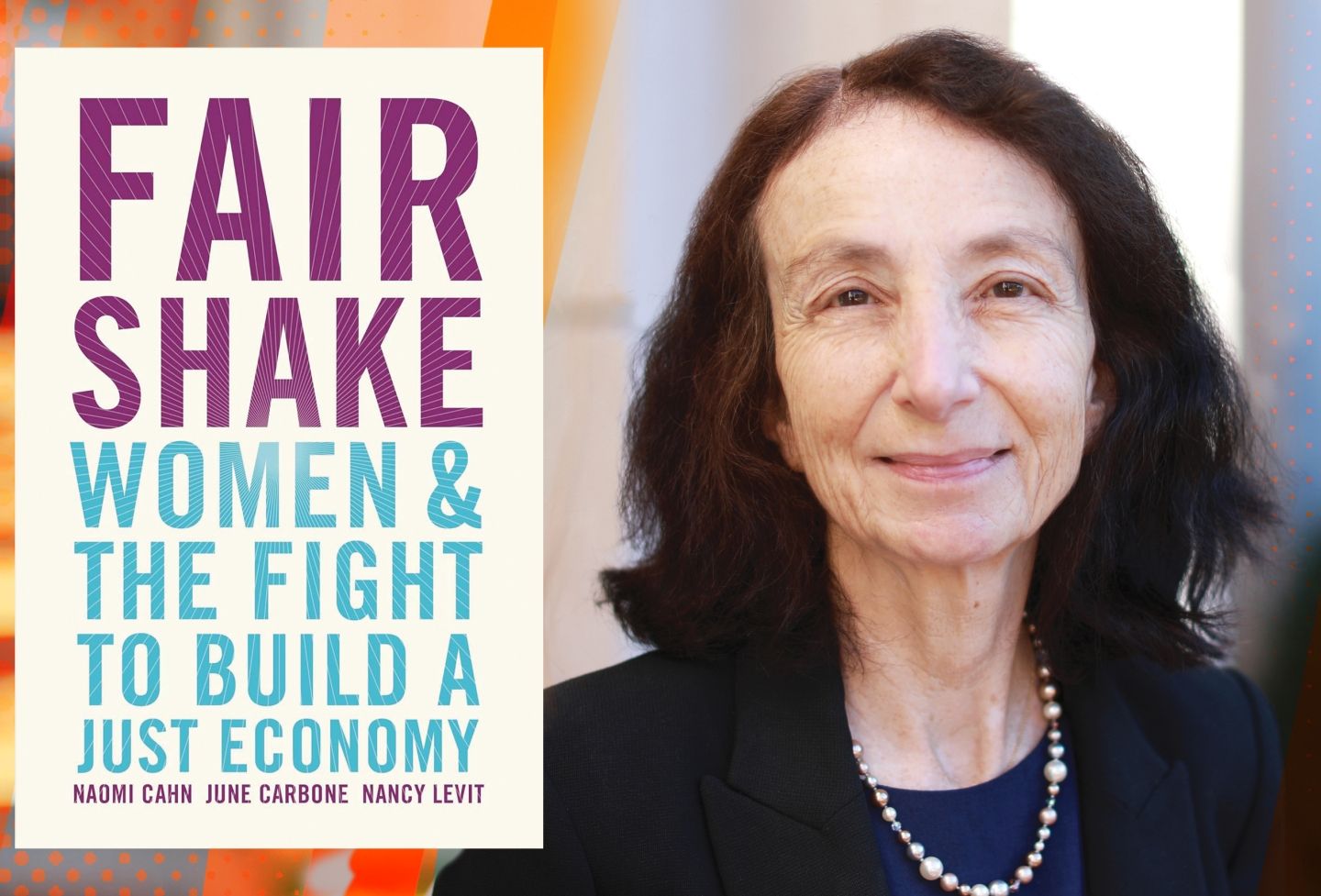Panel Discusses Hot Topics in Child Custody

An experienced juvenile and domestic relations court judge, Hon. Dale Harris presides over 212 child custody hearings a month, working on cases where the child is born out of wedlock. She tries not to talk with the children in her chambers because it can put undue stress on the child. Recently she made an exception and spoke with a nine-year-old about his parents: "Make my mom and dad be nice to each other," he pleaded.
"Experience is easy to come by, but good answers are very difficult to find," Harris said. "Please contribute to these children who are born out of wedlock."
Harris joined other panelists supporting involvement in the juvenile domestic relations court system and family law at the Center for Children, Families and the Law conference, "Resolving Child Custody Disputes: Innovation and Controversy," held on February 28 and March 1 at the University of Virginia School of Law.
Harris's topic-custody for children born out of wedlock-was part of a hot topics panel that also discussed custody arrangements for infants and toddlers, custody evaluations, lesbian and gay parenting, and relocation.
Harris said that about 30 percent of live births in Virginia are from nonmarital relationships; in the Lynchburg district, where she works, there were 1,195 nonmarital births. Of the 555,000 cases filed in Virginia in last year, 150,000 were child custody casesthe largest single subject matter area. Harris said it is harder to get parents to focus on children born out of wedlock, adding that parents need to be educated about co-parenting. "The best gift they can give the child is permission to love the other parent," Harris said.

One of the tools lawyers and the courts use to help make decisions about child custody is custody evaluations, often conducted by psychologists or other professionals experienced in child custody suits. The evaluator, said U.Va. Law Professor Richard Balnave, can offer parents and the courts many benefits, such as recommending ways to improve parents' relationship with their child. Evaluations often contain hearsay, however, which can make the case more difficult and time-consuming for the courts and lawyers trying to reach a suitable child custody arrangement in the span of what often is only a two-hour trial. "I have never seen [a custody evaluation] that is not 50 percent hearsay," Balnave said. "Courts need reliable evidence and it's very difficult if evidence is contested."

Patricia Cullen, who works at the Chesterfield Community Mental Health Center, said that conflicting research studies send mixed signals about what custody arrangements are best for toddlers and infants. One school of thought argues that small children need only brief visits by the non-custodial parent and no overnight stays, she said, while another says non-custodial parents can share custody since child support is better in joint custody cases. "We're just not sure sometimes what the research is really telling us," Cullen said, pointing out that some states have clearly defined guidelines about infant and toddler child custody, while Virginia does not.
"We have to understand that a lot of these concepts have to be differentiated in each case. Every case is different," responded panelist Ron Tweel, who is a private practitioner.

Tweel's presentation traced the legal history of relocation in custody cases in Virginia over the last three decades. In the late 1970s the Virginia Supreme Court did not support a mother who wanted to relocate to another state. The 1980s were more lenient to custodial parents who wanted to move and had a good reason to move, but Tweel contended that the rise of the "family values" theme during the 1992 presidential election made the courts think twice, and currently it is difficult for custodial parents to relocate out of state. "We're living in a conservative state with a conservative judiciary," he said. "The burden has shifted dramatically to the relocating parent in Virginia."
Tweel cited one case where the custodial parent remarried to a man who worked in Pittsburgh; the courts would not let her relocate. "There's a lot of things you can do to attempt to allow relocation to occur, but it's still tough," he said.

Like relocation laws, child custody laws regarding lesbian and gay adoptions and custody arrangements also vary from state to state, noted University of Virginia Psychology Professor Charlotte J. Patterson. While several states have allowed second-parent adoptionswhere the homosexual partner of the legal custodian also adopts the childVirginia has not yet reported any second-parent adoptions, and Patterson says even single-parent adoptions are viewed with hostility. One lesbian parent in Virginia lost custody of her child not because of her sexual orientation but because "conduct in lesbianism is considered a felony" in Virginia's law about sodomy, she said. Four states outlaw lesbian and gay adoptions outright. One of those states is Florida, which does allow homosexuals to become foster parents. Patterson, who is considered the leading expert in the country on gay and lesbian adoptions, noted that the American Association of Pediatricians, an organization that speaks for 55,000 pediatric doctors, recently said it supported second-parent adoptions.
"Two decades of study have revealed that parental sexual orientation per se is not important," Patterson said.
The first case of second-parent adoption in the country, in Washington D.C., allowed the second parent to retain custody of the child after her partner died in a car accident. "I hope that children [of lesbian and gay parents] will be able to count on legal protections that other children have," Patterson said.
Founded in 1819, the University of Virginia School of Law is the second-oldest continuously operating law school in the nation. Consistently ranked among the top law schools, Virginia is a world-renowned training ground for distinguished lawyers and public servants, instilling in them a commitment to leadership, integrity and community service.


